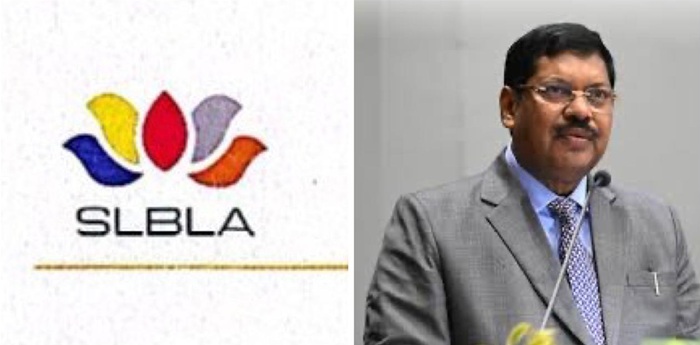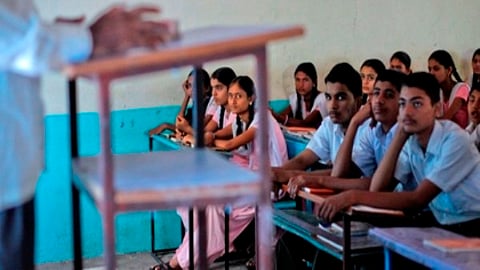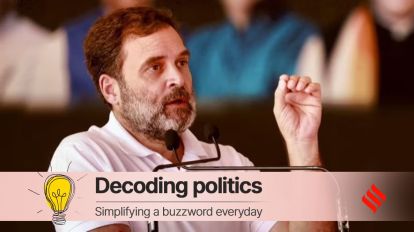18.05.2025.UT Daily NewS.A collection of SC.ST.Buddhist,Adivasi,reservation atrocity news of India.by Team Sivaji.9444917060.asivaji1962@gmail.com

SL Buddhist Lawyers Association’s message to New Indian CJ

The Sri Lanka Buddhist Lawyers Association has extended its wishes to Justice Bhushan Ramkrishna Gavai on his appointment as the 51st Chief Justice of India and the first Buddhist to assume the highest judicial office in India.
“Your unwavering commitment to equity, wisdom, and compassion and working for the welfare of all sentient beings through the dispensation of fair and enlightened justice echoes the teachings of the Buddha,” the Association said, in a letter addressed to the Indian Chief Justice.
The Sri Lanka Buddhist Lawyers Association further said, “In these times of complexity, may your leadership inspire not only Bharat but the wider region in reaffirming the foundational values of justice, tolerance, and universal fraternity.” (Newswire)
18 Adi Dravidar Welfare schools in Tiruchy register 100 per cent pass result

Among the 27 Adi Dravidar Welfare Schools (13 higher secondary and 14 high schools) in Tiruchy, the pass percentage improved to 91% from 86% in 2023-2024. A total of 18 schools recorded 100 % results.
In Pachamalai, the GTRHSS Chinnaillupur achieved 100% pass, with all 19 students (8 boys and 11 girls) clearing the exam. R Saranya registered top score of 480 marks, including centum in Science.
The Top Sengatupatti Tribal School achieved a 93.62% pass with two students, Subash securing centum in Social Science and S Subathra in Science respectively. Sempulichampatti Tribal School also maintained a 100% result, with all 15 students passing.
Decode Politics: In Bihar, why Rahul Gandhi alleged funds meant for Dalits not reaching them
NDA government in state dismisses allegations, says recent CAG report did not use the term “diversion”, only listed department-wise allocations of the Scheduled Caste Sub-Plan fund
 Rahul Gandh told the students in Darbhanga, “You have no place in this country; there is no place for 90% of the people of the country." (File photo)
Rahul Gandh told the students in Darbhanga, “You have no place in this country; there is no place for 90% of the people of the country." (File photo)During a recent interaction with students from Other Backward Classes (OBC), Extremely Backward Classes (EBC), Scheduled Castes (SC), and minority communities at a government-run Ambedkar welfare hostel in Bihar’s Darbhanga, Lok Sabha Leader of Opposition Rahul Gandhi alleged that SCs were not benefiting from the Scheduled Caste Sub-Plan (SCSP) fund, a pool of resources set aside for their development.
The Congress MP was speaking at an inaugural meeting of the Congress’s “Shiksha Nyay Sanvad” campaign, which will focus on education issues and discuss grievances of students, on Thursday.
What is the Scheduled Caste Sub-Plan?
The SCSP is the Central government’s strategy to ensure a proportionate flow of resources for the development of SCs through the implementation of infrastructure, education, health and other welfare schemes in areas with a substantial Dalit population.
The SCSP was started in 1980 by then Prime Minister Indira Gandhi in her bid to reach out to Dalits. The SCSP’s funds are channelled through the Union Ministry of Social Justice and Empowerment, which provides Special Central Assistance. There are three categories of SCSP schemes: fully Centre-funded, fully state-funded, and hybrid schemes split between the Centre and the state in a 60:40 ratio.
How much does Bihar spend on SCSP schemes?
As per recent Comptroller and Auditor General (CAG) reports, the Bihar government allocated Rs 16,777 crore for its SCSP schemes in 2021-22, but allegedly diverted Rs 10,799 crore to general schemes.
Similarly, Rs 18,450 crore of the Rs 19,688 crore allocated for SCSP schemes was allegedly diverted to non-SC schemes in 2022-23. In 2023-24, the state government allegedly spent Rs 11,796 crore on general schemes from the total SCSP fund of Rs 16,939 crore.
Some of the key SCSP schemes include income-generating initiatives, financial assistance for the construction or upgrade of houses, providing free land for housing, education and skill development schemes such as free distribution of books and school uniforms.
Have concerns been raised about the alleged diversion of SCSP funds?
After the latest CAG report on the Bihar government’s performance flagged problems in the SCSP funds, as many as nine Bihar legislators, including CPI(ML)(L) MLA Satyadev Ram, questioned the Janata Dal (United)-led state government on the alleged diversion of funds in the Assembly in March.
While the state government did not dismiss the CAG findings, it said the auditor did not use the term “diversion” but had only described the department-wise allocations of the SCSP fund.
For instance, in 2023-24, the CAG report said, from the Rs 16,939 crore of SCPS funds, Rs 1,447 crore was allocated to the Chief Minister Local Area Development Scheme and for flood control, Rs 3,465 crore went towards the construction of medical colleges, Rs 394 crore for the construction of government buildings, and Rs 212 crore for the construction of state hospitals and health service buildings, among other projects. A Rs 460 crore loan of state electricity companies was also repaid using the SCSP funds.
What are the rules in place for the use of SCSP funds?
The Parliamentary Committee on the Welfare of Scheduled Castes and Scheduled Tribes submitted a report on social justice to both Houses of Parliament in August 2018 in which it flagged concerns about the use of funds intended for SCs.
“Under the allocation for welfare of Scheduled Castes, diversion of funds is not permissible and the funds are earmarked only for SCs, but due to the general nature of the schemes of some ministries/departments, funds are not utilised fully,” the report said. The Committee also recommended that the NITI Aayog monitor SCSP funds to ensure they are not underutilised or diverted.
Social activist Rajiv Kumar, who has written several letters to the Centre on the matter, said neither the Centre nor the state government had been ready to accept that funds were diverted even though the money was “blatantly used by other departments”.
How does this tie in with the Congress’s poll agenda?
Rahul Gandhi sees potential in turning this into a political issue ahead of the Assembly polls later this year, since Dalits account for 19.65% of the state population.
Gandh told the students in Darbhanga, “You have no place in this country; there is no place for 90% of the people of the country. Right from the senior bureaucracy to the Government of India, high courts and top management of educational and medical (institutions), there is zero representation for 90% of the population. But MGNREGA is full of your people. The SCSP funds meant for SCs are not reaching them. All the riches are with 5-10% of people.”
Though the Congress has raised the alleged diversion of SCSP funds at the national level from time to time, it is for the first time that the party is taking up the matter in Bihar. In the 2020 Assembly polls, the Congress won 19 seats. Four of its MLAs are Dalits.
The BJP-led NDA, however, maintained it was up to bureaucrats to explain the nitty-gritty of the SCSP rules. JD(U) MLC Neeraj Kumar said, “When the state government has explained the matter in the Assembly, it should not be politicised.”
A senior Bihar-cadre IAS officer said, “It is true that SCSP funds are used for many purposes, but it is done with due permission from the Centre.”
Santosh Singh is a Senior Assistant Editor with The Indian Express since June 2008. He covers Bihar with main focus on politics, society and governance. Investigative and explanatory stories are also his forte. Singh has 25 years of experience in print journalism covering Bihar, Delhi, Madhya Pradesh and Karnataka. ... Read More






Comments
Post a Comment